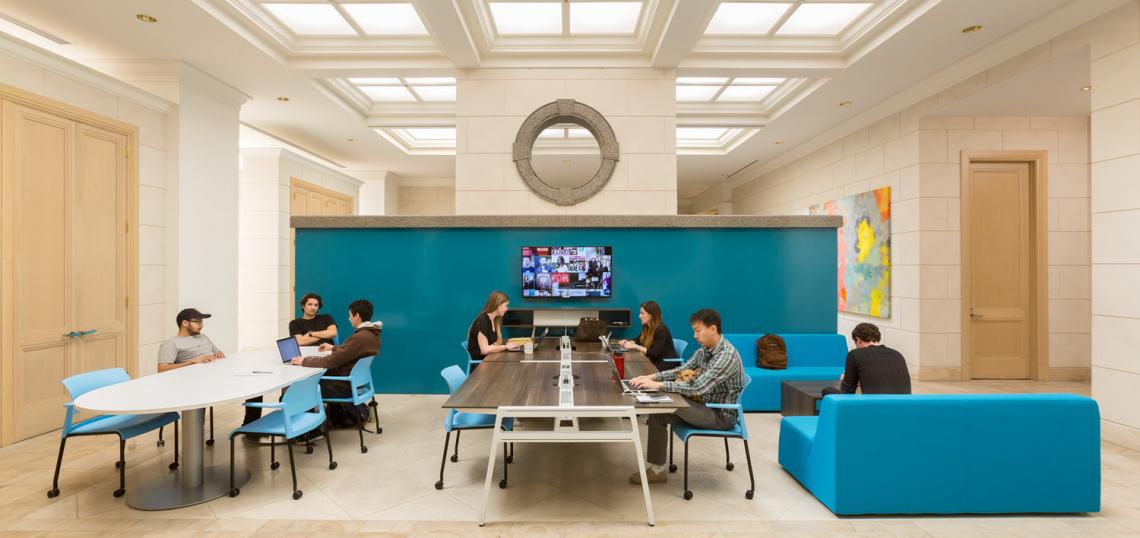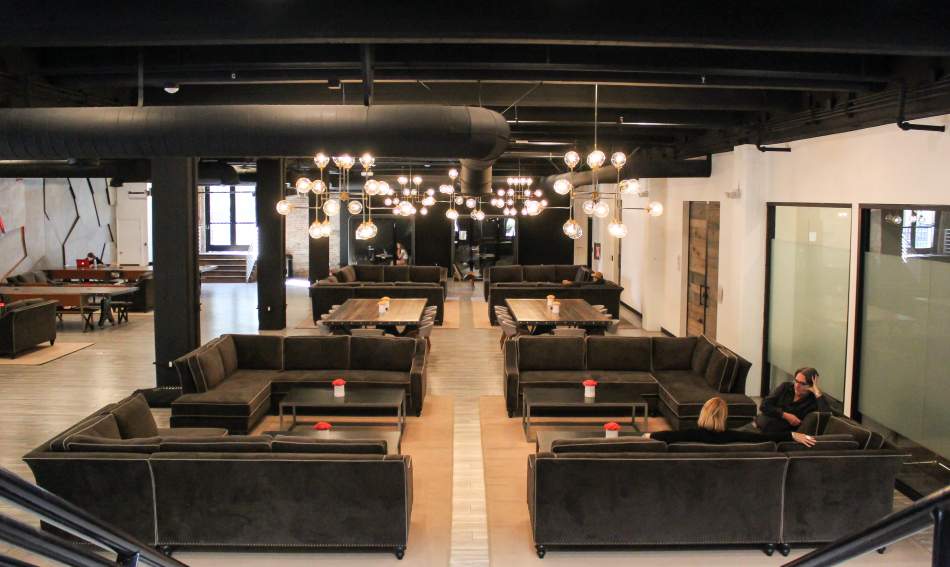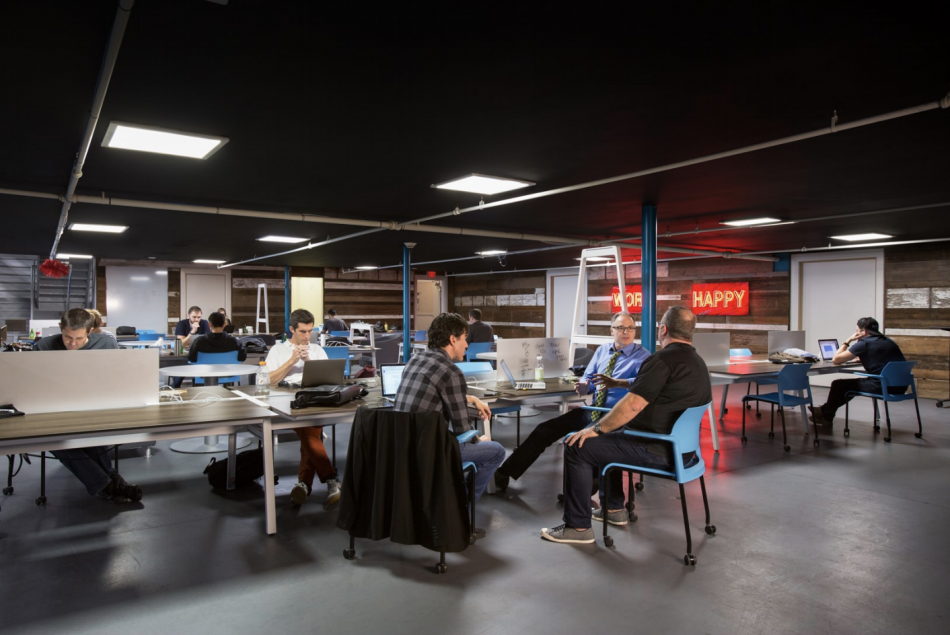As old industries change and giants of Corporate America fall left and right, a common term is heard striking fear (or opportunity) into the hearts of those of still untouched industries: disruption.
Disruption in the digital age often has one thing in common: The Sharing Economy. From companies like Facebook and LinkedIn, this idea has overflowed into the physical world in the form of Airbnb, Uber, and Spotify. Noticing this trend is helpful to those concerned for what the future holds (and especially those who aren’t) the same way being an early adopter of Uber or Spotify may have changed the eventual fate of taxi drivers and music labels alike.
Today, the next industry to be disrupted by the sharing economy is most certainly real estate.
Shared office space (also known as coworking) offers tenants flexible term-lengths, a variety of amenities and all-inclusive pricing often including snacks, receptionist, security, and utilities. In 2010 there were less than 500 coworking spaces. Today, there are 3,000 in the US alone, and 15,000 globally. By 2022, it is projected that 5.1 million people will be working out of coworking spaces.
The driver of this growth is the new ‘freelance’ economy. Studies have found that 50 percent of millennials are freelancers. With the millennial generation expected to compose more than half of the global workforce by the year 2022, it is unsurprising that by 2027, it is projected that 50% of the global workforce will be freelancers.
To attract this new demographic, coworking spaces typically feature large, artsy, relaxed, communal spaces alongside more private offices with the intention of fostering collaboration. Tenants may start off as strangers sharing a workspace, but end up as business partners.
Coworking is not exclusive to freelancers. Businesses of all sizes are enticed by the flexibility offered with coworking. No longer must a new business be locked into long-term contracts, coworking offers the ability to scale up/down to a business’s needs and offers amenities businesses may not otherwise be able to afford such as luxurious conference rooms, photo studios, reception services and large communal areas.
Each coworking space has its own vision of how this should look. WeWork, for example, fosters the creative and collaborative environment, featuring all-glass open offices to nourish the collaborative environment. Others, such as CTRL Collective offer completely private offices that are closed off to allow mid-to-larger companies (or those that just want their privacy sometimes) to thrive.
What this new business does to the industry of brokers is still to be seen. Recognizing this, WeWork has already moved into this role internally, positioning their in-house real estate consultants within an arms-length of their customers in hopes of monetizing move-outs from their spaces and up-selling their services to that customer. As this tends to ostracize brokers who intend on retaining relationships with former clients, some coworking companies offer incentives to brokers directly who refer clients to their space.
One thing we've observed firsthand is how this fills a gap for brokers looking to house warm leads temporarily (until capital is raised or while a particular development is being built out) while also generating additional revenue. Furthermore, brokers can also use coworking spaces to keep new leads who aren't at the size to sign larger deals, still firmly within their network.
There will likely always be a need for larger companies to sign traditional deals; but as the market shifts, brokers can expect to receive more and more tenants looking for affordable, flexible and scalable solutions to office rentals. If you’d like to see what the future of office space looks like and how to incorporate the future of office rentals in your business plan (or where to host your own offices!), we’d love to give you a tour.
We’d love to hear from you: avi.zolty@ctrlcollective.com, (404) 446-5102
@ctrlcollective.com









